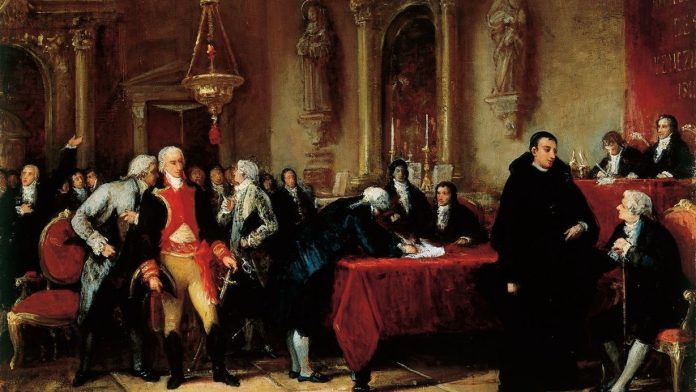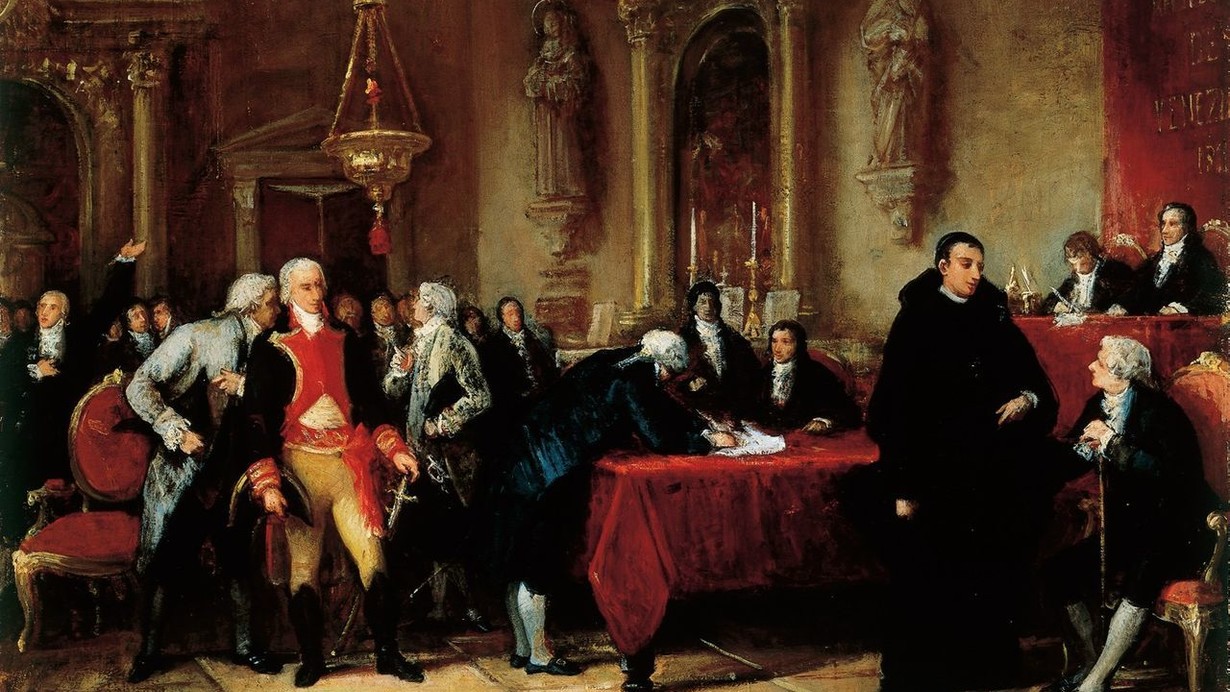
By OMAR OSORIO AMORETTI
When we talk about poetry written during the time of independence in Venezuela, we should not reduce it, as national literary historiography has made us see, to the famous case of Andrés Bello and his allocution to poetry y Silva to torrid zone agriculture. In reality, this had a vast and varied production where all possible modes of poetic construction shared, from the verses of the greater art executed by the most educated social classes (with their silvas, sonnets and royal octaves) to those of lesser art, marked by the ingenuity and rhythmic game that the popular classes generally gave him (with their glosses, lampoons and songs). Some of these texts have survived thanks to being published in newspapers or recorded in the testimonies of some travelers, but most have been lost due to the historical need to be transmitted and produced orally in a society with little literacy. This would also explain the constant anonymity of the writings, since what has happened (and sometimes even changed) through the mouths of many can never be from someone in particular.
The objective of this poetry escapes the contemporary vision of art as a simple source of entertainment, so popular in consumer societies. On the contrary, before a community shocked by the war and polarized by the clash of two antagonistic political ideas (monarchy-republic), the poems become what Juan Germán Roscio demanded along with the bayonets: the “instruments of persuasion: a deluge of proclamations, of gazettes, writers and orators”, since all these together with art and drama “greatly inflamed the spirit”.
This seems to have been a clear project within the patriot side, since of the existing poems from 1810 to 1823 we barely find around five pieces whose contents focus on extolling the actions of the royalists. Its themes are many, but some of them could be categorized as elegiac (with which the death of soldiers is lamented and symbolically extolled by giving them a mantle of heroism), geographical (where the exuberance and fertility of the land is described American), heroic (characterized by a Manichean reading of the war as an epic conflict between two values: freedom/goodness/republic vs. despotism/evil/monarchical system) and epigrammatic (whose social function is accentuated when written with the intention of to hurt someone, boost the morale of the army or praise a renowned figure at a given moment).
The verbal pugnacity was not only staunch, but also fast, as was the case with the lampoons. There is very eloquent testimony in this regard in the Orinoco Mail of July 31, 1819, number 35. It indicates how a follower of the king’s cause (in the newspaper he is called a “flatterer of Spanish tyranny”) recited the following verses to General Pablo Morillo:
Let’s curse the vile law
What independence invites;
Let’s defend scepter and life
From Ferdinand, our king.
Long live our viceroy,
Morillo, Enriles, Morales,
Governor, Officers,
And all his undefeated troop,
Who came from Europe
To remedy our ills.
However, the royalists had not finished enjoying those honeys of their minerva when the next day a refutation of the same tenor appeared on the streets:
let us bless the great law
That invites independence,
Let’s destroy scepter and life
Of Fernando, intruder king.
What do you mean viceroy,
Morillo, Enriles, Morales,
Governor, Officers,
And all his unworthy troop,
But thieves from Europe,
That double our evils?
Thus, the marked parodic tone of the verses, their transgressive and ingenious character demonstrates how in poetry there was also a subtle way, although not for that reason less relevant, of protesting, revealing oneself and demoralizing the opponent. Weapons could hurt bodies, but only poems pierced the hearts of men.
But not everything is based on civic duty: there are also spaces for pleasure and a healthy exercise of understanding, as was the case with the logogriphs, enigmatic poems that hide a simple word and whose associations constitute a challenge to the intellect. In the Gazette of Caracas there were several of these and on November 29, 1821 we found the last recorded where the author of these playfully reveals his name. Apparently no one knew at the time who it was, since there is no mention of it in the following numbers. Here we transcribe it to the readers of the magazine to see if they have better luck:
I am the duende that you try to hit.
With only nine letters
Of an admirable game
The novelty I paint you, more dark.
With four I speak (and this is to be brief)
In the Greek language:
Five, hideous monster,
That neither the dragon, the sphinx and minotaur
They beat, I offered you.
of blissful wit
I gird the hundred of unfading lauro.
This is the first time
that for the love of man,
I no longer hide my mysterious name.
